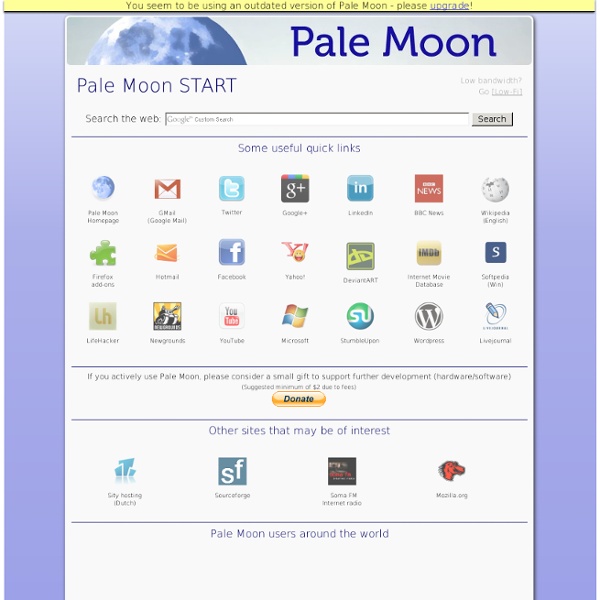



Welcome to freshmeat.net | freshmeat.net Visual C++ Many applications require redistributable Visual C++ packages to function correctly. These packages are often installed independently of applications, allowing multiple applications to make use of the package while only having to install it once. These Visual C++ redistributable and runtime packages are mostly installed for standard libraries that many applications use.[3] History[edit] The predecessor to Visual C++ was called Microsoft C/C++. There was also a Microsoft QuickC 2.5 and a Microsoft QuickC for Windows 1.0. 16-bit versions[edit] 32-bit versions[edit] 32-bit and 64-bit versions[edit] Visual C++ 2005 (known also as Visual C++ 8.0), which included MFC 8.0, was released in November 2005. Issues[edit] See also[edit] References[edit] External links[edit]
Visual Basic Visual Basic is a third-generation event-driven programming language and integrated development environment (IDE) from Microsoft for its COM programming model first released in 1991. Microsoft intends Visual Basic to be relatively easy to learn and use.[1][2] Visual Basic was derived from BASIC and enables the rapid application development (RAD) of graphical user interface (GUI) applications, access to databases using Data Access Objects, Remote Data Objects, or ActiveX Data Objects, and creation of ActiveX controls and objects. A programmer can create an application using the components provided by the Visual Basic program itself. The final release was version 6 in 1998 (now known simply as Visual Basic), nevertheless, Microsoft extended the support for Visual Basic 6.0 until 2023 under "It Just Works" statement.[9] Language features[edit] An empty form in Visual Basic 6. For example, a drop-down combination box automatically displays a list. Characteristics[edit] History[edit] VB DOS icon
FarhanRehman.co.uk Internet 101.101.101.101 There's a lot of confusion out there. Many people equate the World Wide Web with the Internet. Others think that e-mail is the internet. Still others think that the internet is one big library. We're quite used to these kinds of rules. The internet is really a set of protocols that everyone agrees on and follows to facilitate the transfer of information from one point to another, and sometimes to multiple points. A Little History In response to the launch of Sputnik in 1958, the Advanced Research Projects Agency (ARPA) was founded in the U.S. Before the internet could become the rage it is today, a robust, standardized, and open set of communication protocols needed to come into existance. TCP/IP Anybody who has hooked their computer up to the internet has encountered this mysterious acronym and it's associated set of strange numbers. First we need to take a simplified look at how data flows across the internet. Application Layer Transport Layer (TCP) Internet Protocol (IP) Links:
dot kam - be kind, do good programming LXer: Linux News OpenOffice.org - The Free and Open Productivity Suite